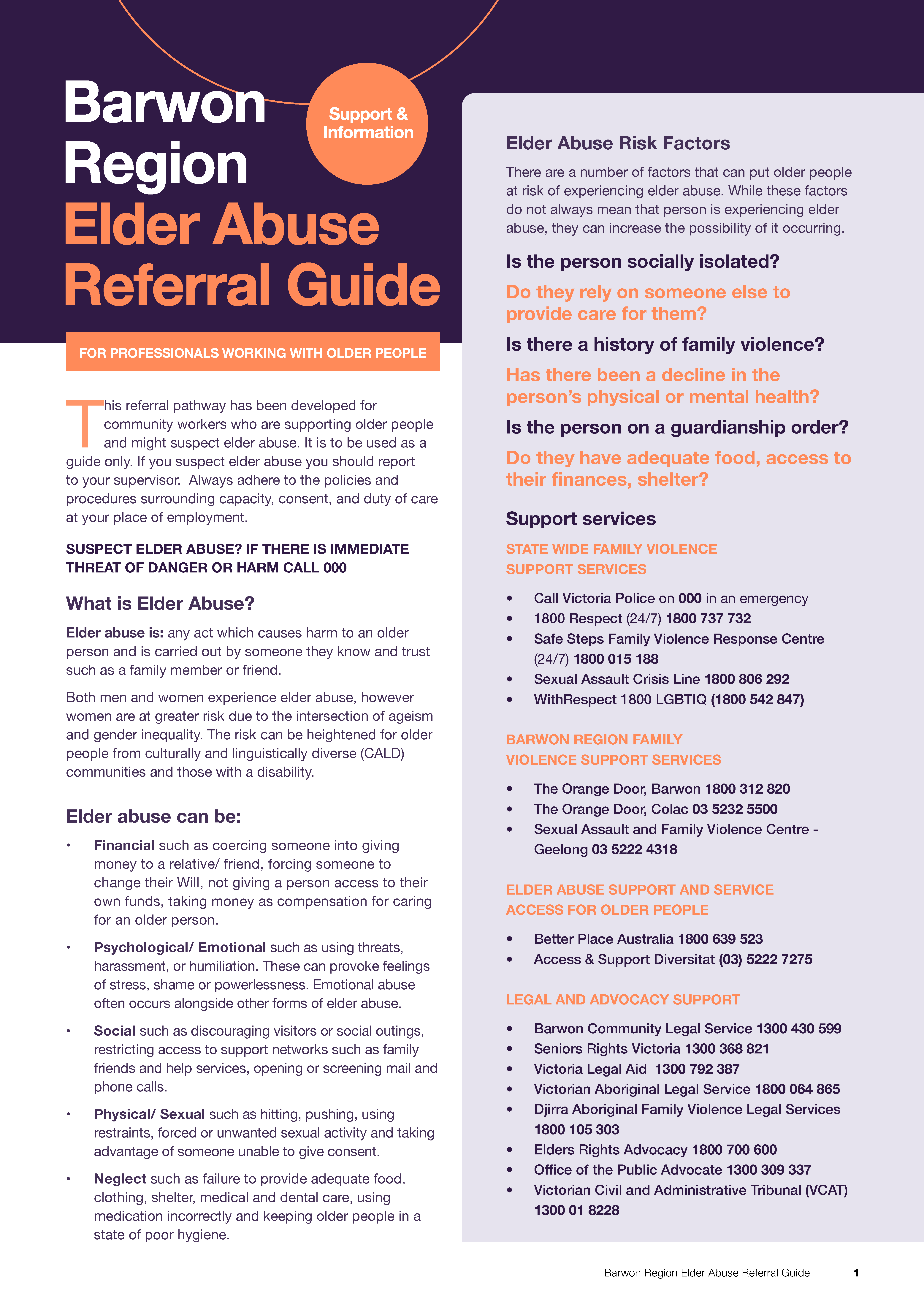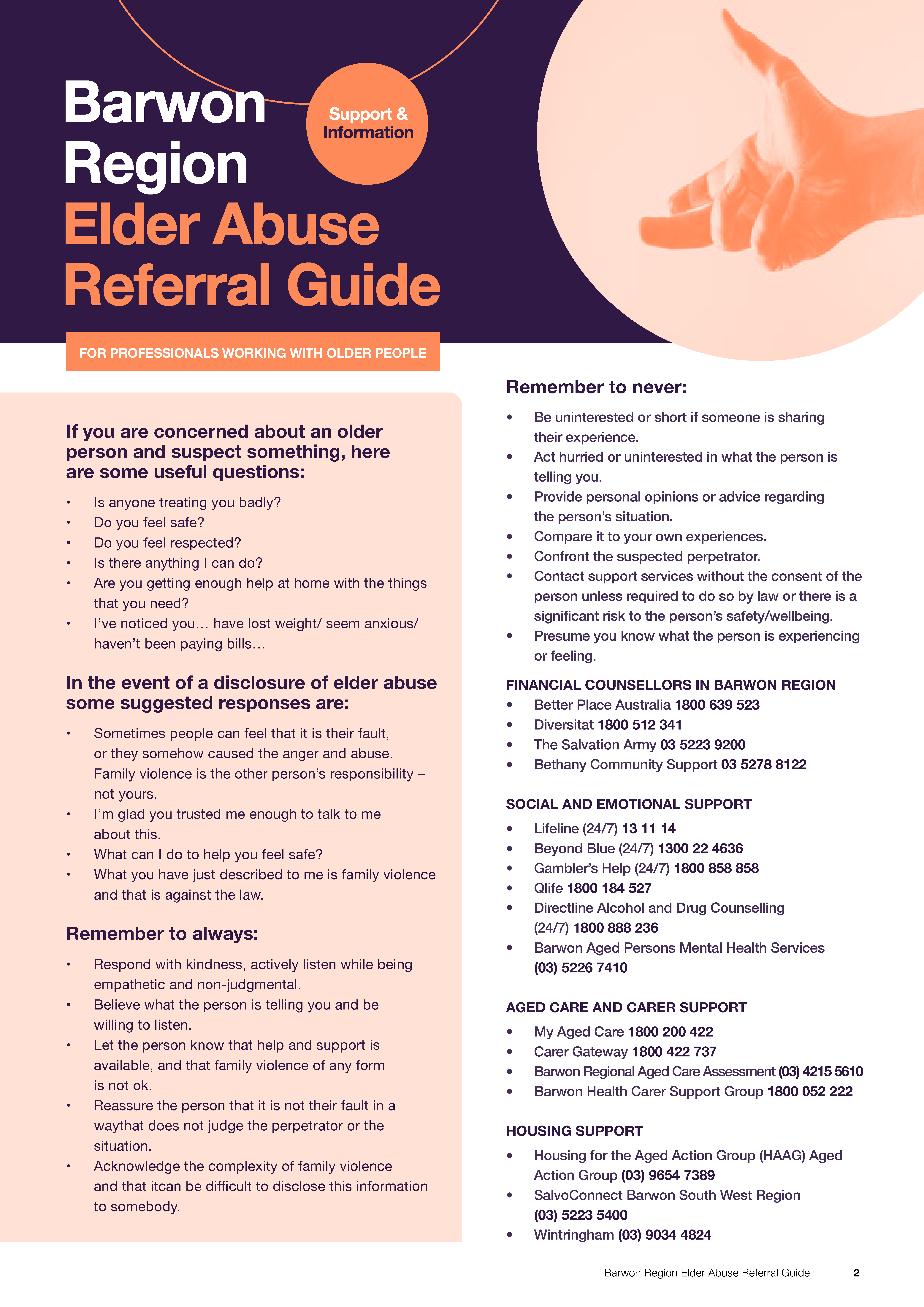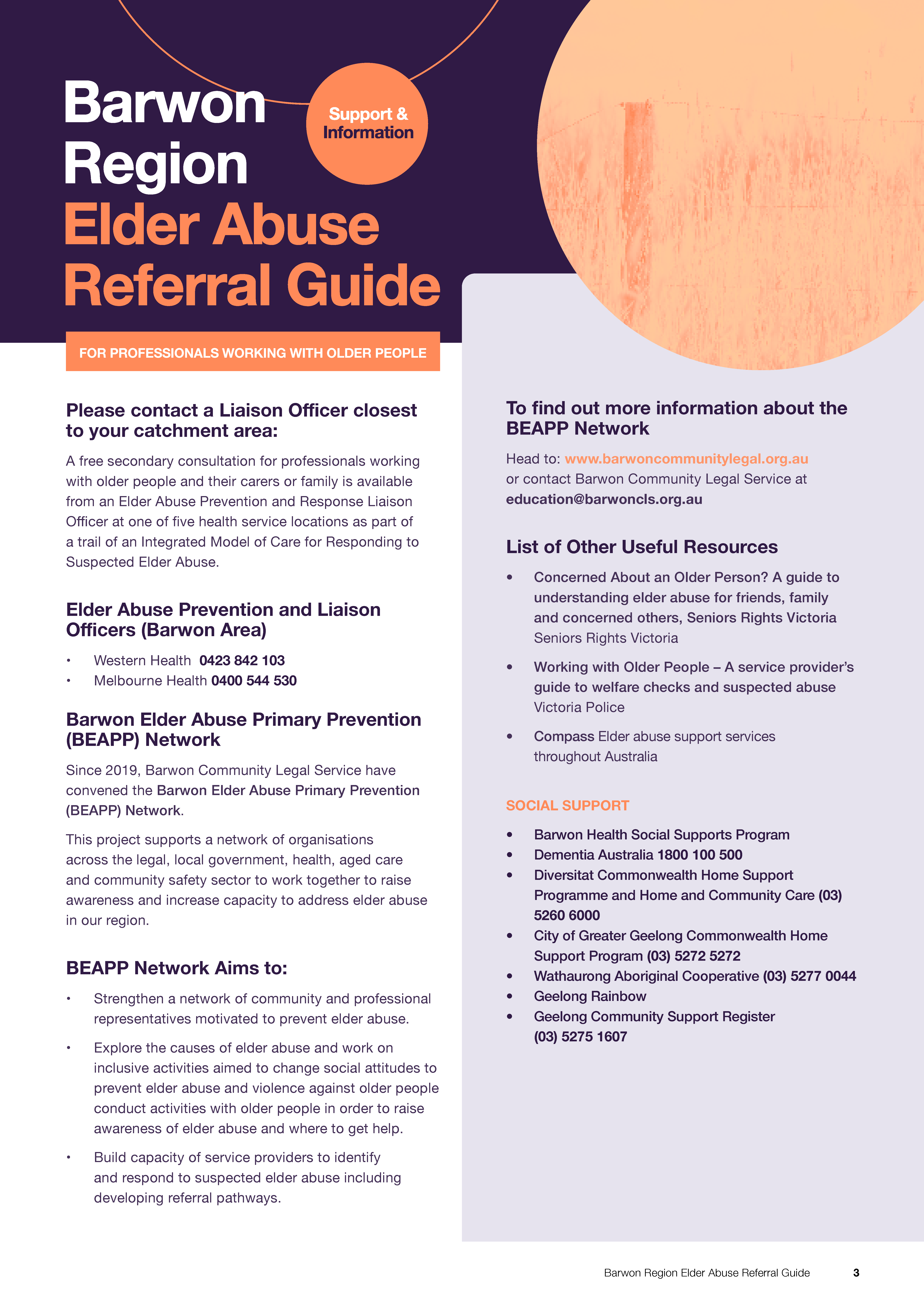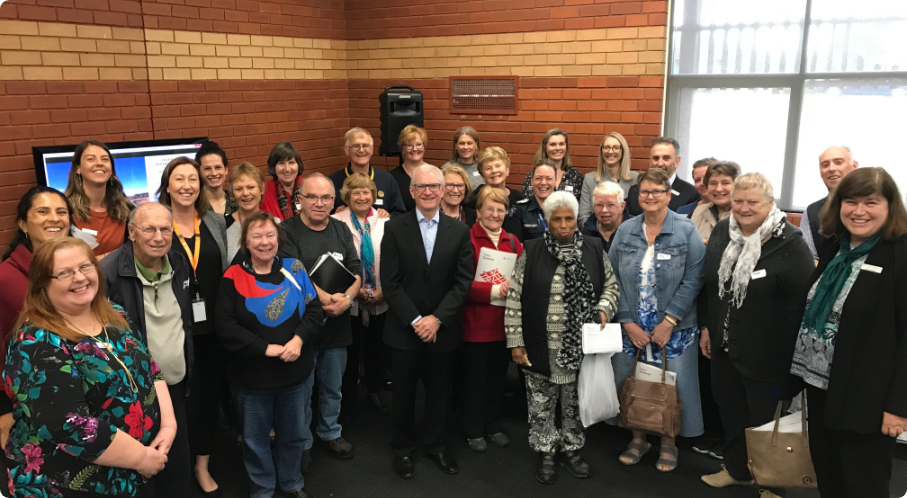

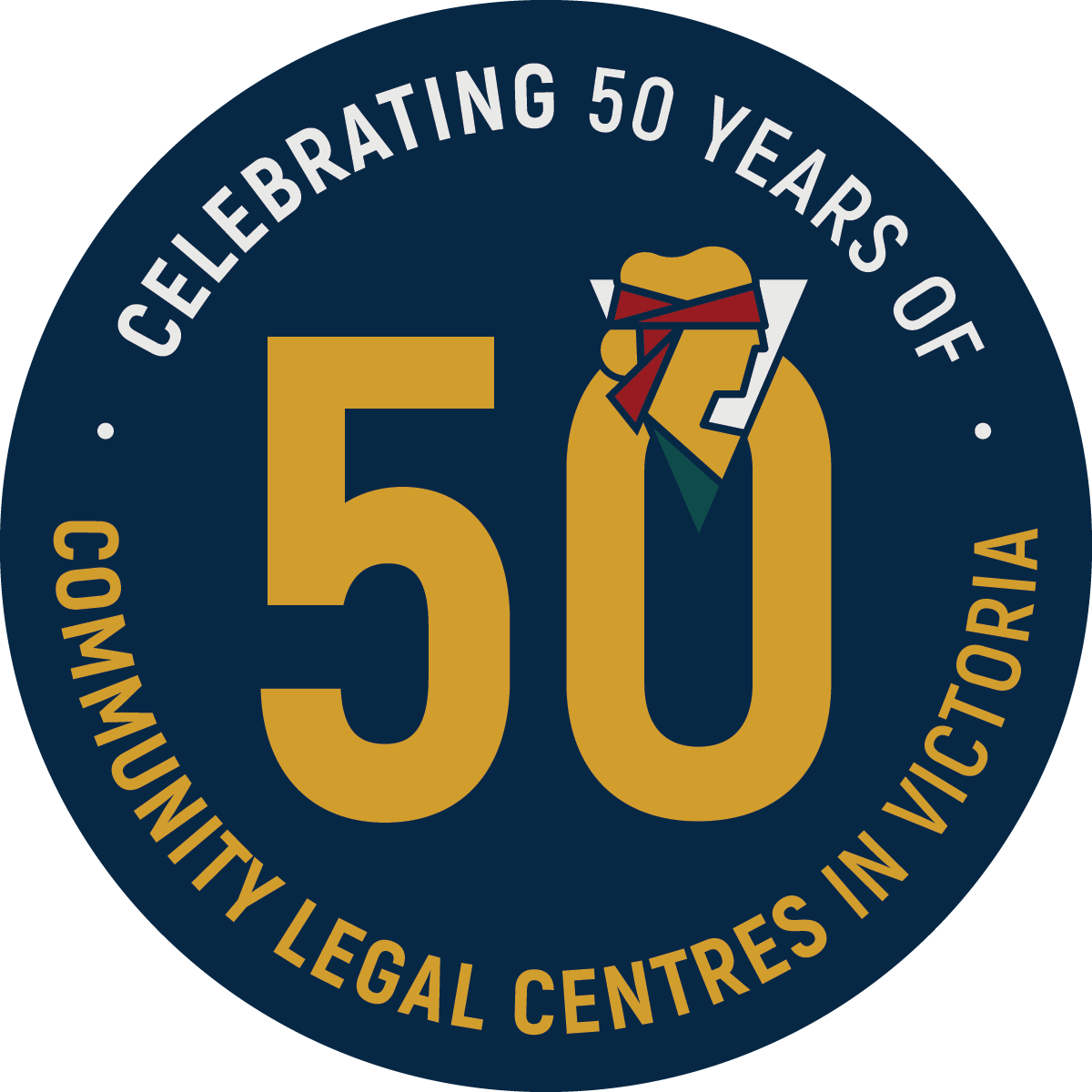

Barwon Elder Abuse Primary Prevention Network
The Barwon Elder Abuse Primary Prevention (BEAPP) Network supports a network of organisations across the legal, local government, health, aged care and community safety sector to work together to raise awareness and increase capacity to address elder abuse in our region.
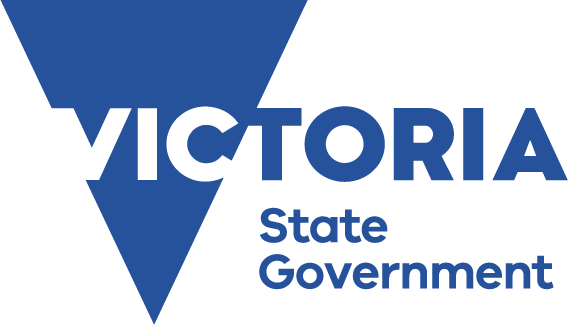

The BEAPP Network aims to:
- Explore the causes of elder abuse and work on inclusive activities aimed to change social attitudes to prevent elder abuse and violence against older people
- Conduct activities with older people in order to raise awareness of elder abuse and where to get help
- Build capacity of service providers to identify and respond to suspected elder abuse including developing referral pathways
What is Elder Abuse?
Elder abuse is any act which causes harm to an older person and is carried out by someone they know and trust such as a family member or friend. The abuse may be physical, social, financial, psychological or sexual.
Background to Elder Abuse Prevention Networks
As part of the response to the Royal Commission into Family Violence, the Victorian Government funded ten Elder Abuse Prevention Networks (EAPNs) across Victoria to explore how to prevent elder abuse before it occurs. We acknowledge the funding support of the Victorian Government to allow us to continue this work.
Coercing someone into giving money to a relative/ friend, forcing someone to change their Will, not giving a person access to their own funds, taking money as compensation for caring for an older person.
Using threats, harassment, or humiliation. These can provoke feelings of stress, shame or powerlessness. Emotional abuse often occurs alongside other forms of elder abuse. – Social such as discouraging visitors or social outings, restricting access to support networks such as family friends and help services, opening or screening mail and phone calls.
Hitting, pushing, using restraints, forced or unwanted sexual activity and taking advantage of someone unable to give consent.
Failure to provide adequate food, clothing, shelter, medical and dental care, using medication incorrectly and keeping older people in a state of poor hygiene
Forced isolation and increased helplessness. Examples may include Restricting access to support networks (family, friends, help services); Discouraging visitors/social outings ; Opening mail/screening phone calls without permission
Elder Abuse Educational Videos in Language
How do you get help if you or someone you know is experiencing elder abuse?
We Say No to Elder Abuse
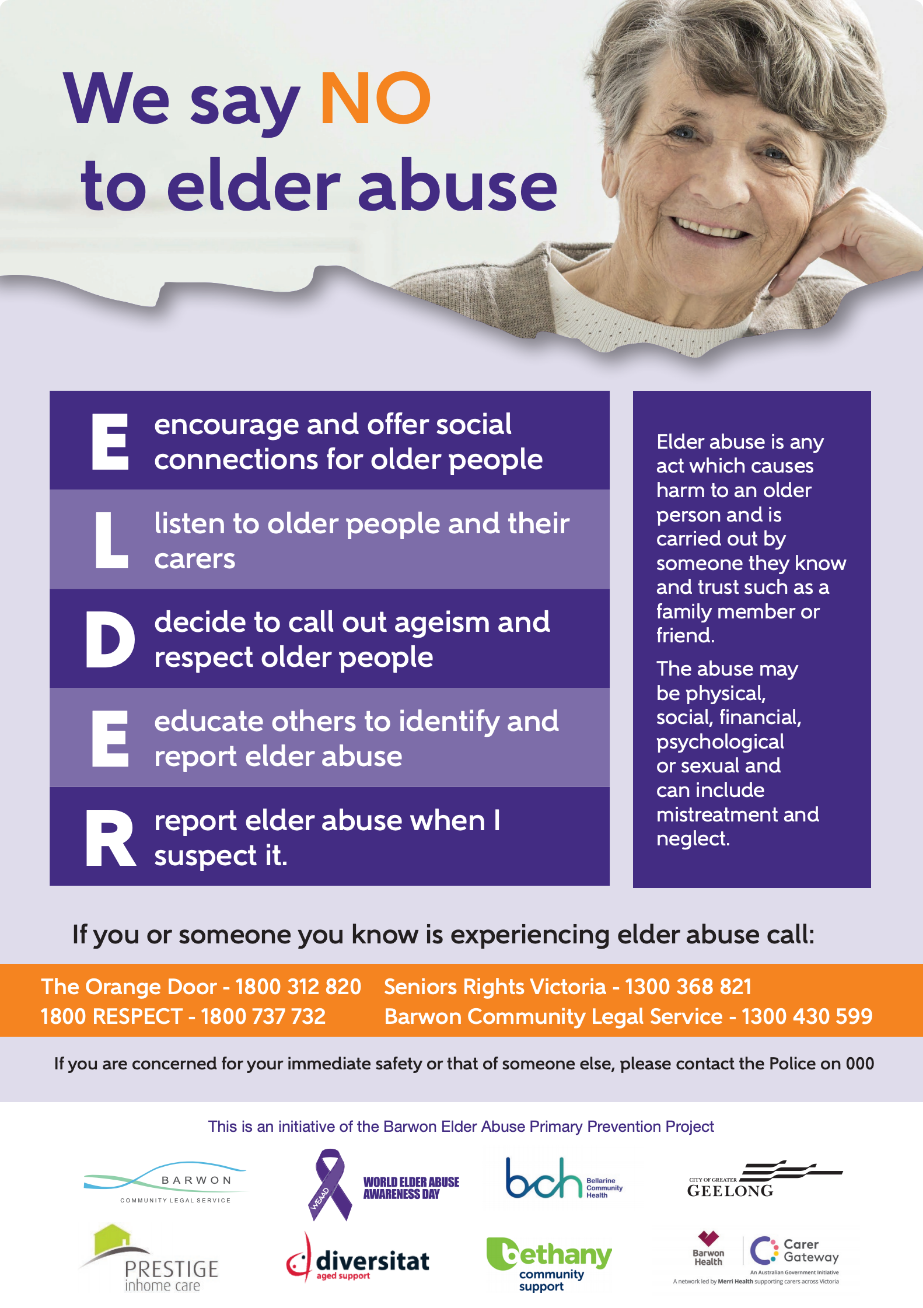

Find out more and get involved
To join the BEAPP Network or to learn more about our community activities please contact Alexandria Jones at education@barwoncls.org.au or on 1300 430 599.
Call us todayLast modified on April 4th, 2024 at 10:36 am
The content on this site is information only and is not legal advice. If you need legal advice please contact us.
